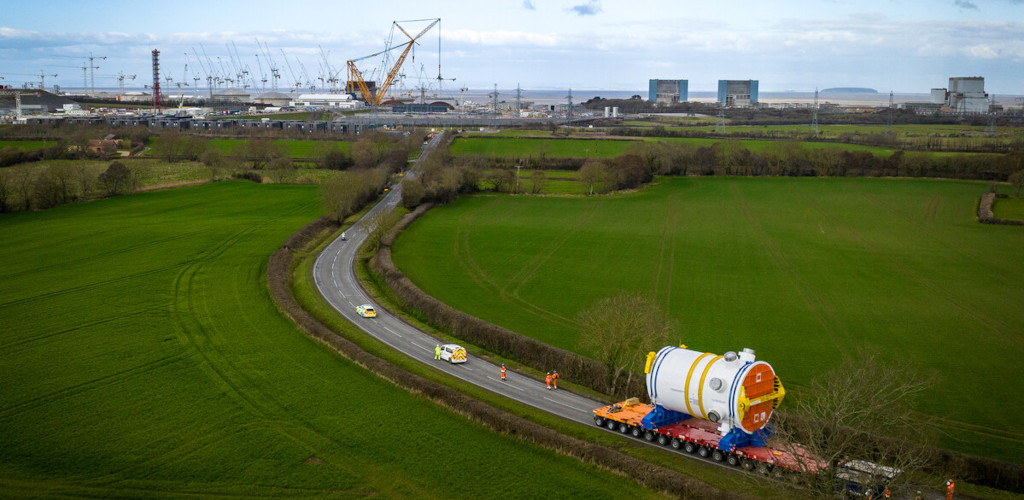500-Tonne RPV was Carried by Barge and Transporter to Hinkley Point C

Osprey has delivered a reactor pressure vessel, or RPV, to the Hinkley Point C nuclear power plant in Somerset, southwest England, the first civil nuclear reactor to arrive in the UK for more than 30 years.
The project specialist was tasked with moving the 500-tonne, 13-metre-long reactor by barge from Avonmouth Docks in Bristol along the River Parrett to Combwich Wharf, a purpose-built dock designed to support the construction of Hinkley Point C.
The UK-based operator then used an SPMT to transport the unit four miles to Hinkley Point, a move that took five hours.
_1.jpg) The reactor, the first of two that will be used to create the heat needed to make steam for the project’s gargantuan turbines, was built by French nuclear energy firm, Framatome.
The reactor, the first of two that will be used to create the heat needed to make steam for the project’s gargantuan turbines, was built by French nuclear energy firm, Framatome.
“Osprey oversaw operations from discharge to delivery at HPC. It was a fully engineered, land and marine delivery of this critical component, safely delivered on schedule,” a spokesperson for Osprey said.
UK-based Osprey has been supporting the buildout of Hinkley Point C, one of Europe’s largest engineering projects, for several years.
The £33 billion plant, slated to begin operations in mid-2028, will eventually house two RPVs providing 3.2-gigawatt electric, or GW(e) of generating capacity. It is being developed by EDF Energy, the UK division of France’s EDF.
Previously, Osprey has delivered two, 45-metre polar crane main beams used for the installation of the RPV, and a 257-tonne low-pressure rotor, part of the plant’s steam turbine system.
“These are not assets that can be bought off the shelf, they are bespoke to Hinkley Point, so every millimetre of movement is carefully orchestrated and signed off by a team of engineers (and) transport and safety specialists,” Osprey said.
Hinkley Point C is one of eight large-scale nuclear power plants being built in Europe, according to the Energy Industries Council.
According to analysts, the global “resurgence” of nuclear power is being driven by climate change targets, the region-wide phase-out of coal-fired power plants and the conflict in Ukraine, which continues to wreak havoc on energy markets.
“Russia’s invasion has reinforced how fragile fossil fuel supply chains are, and the economic impact of disruption to those supplies,” Dr. Jonathan Cobb, senior communications manager at the World Nuclear Association, told Breakbulk.
“More countries are developing plans for new nuclear build to provide greater energy security and reliability. Even countries such as Belgium and Germany with nuclear phase-out policies have delayed those phase-outs to reduce their short-term reliance on imported gas.”
In the UK, EDF is also developing the 3.2 GW(e) Sizewell C plant in southern England. The project, being built next to Sizewell B, is slated to start in 2024, with construction taking up to 12 years.
Together, Hinkley Point C and Sizewell C are expected to provide low carbon electricity to meet 14 percent of UK demand and power about 12 million homes.
Check out a video of the Hinkley Point C reactor move:
Video and photo credit: EDF
